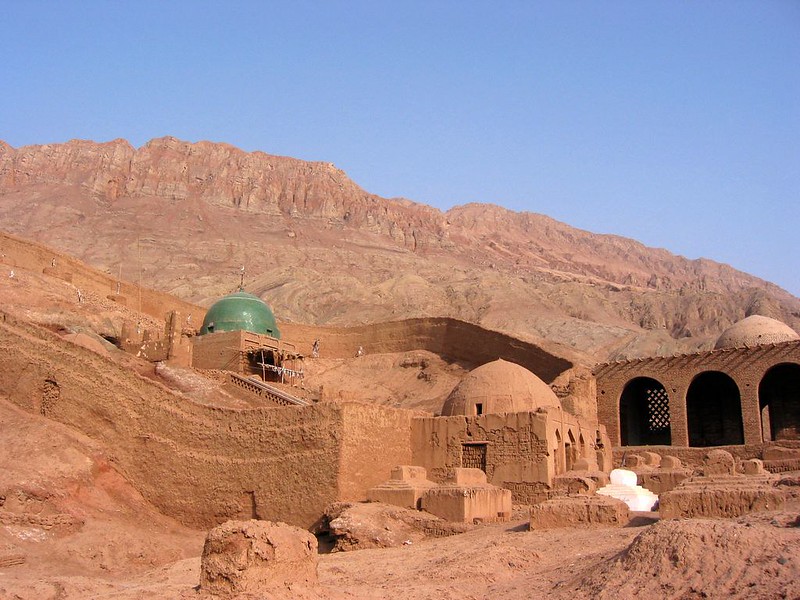1.4.2 Modernity and Islam

Turban, previously a pilgrimage location for Chinese Muslims before it was closed down by the state. Roy Berman, 2005.
While enveloped by and indebted to the technologies of colonial modernity, the rival narratives of Islam and Muslim identity proffered by these actors, as they contested the normative place and memory of Prophet Muhammad in modernity, drew on a long-running intellectual heritage of texts, authorities, and citational practices irreducible to the political and conceptual juggernaut of modernity (The Immanent Frame, 2020).
In this essay, Madrasa Discourses US Faculty and Professor of Religious Studies SherAli Tareen presents modernity as a self-promoting narrative native to Western Europe with a complicated relationship with indigenous reform efforts around the world. He notes that students of religion face particular challenges while studying non-Western religious traditions and movements in contexts marked by Western colonization. Students must recognize and highlight the transformative effects of colonial power on indigenous discourse while nonetheless acknowledging that indigenous discourses and imaginaries are not static and experience change and continuity and internal contestation. He explains that this problem becomes especially pressing for understanding contexts like Muslim reform movements in, say, colonial India. If an Indian Muslim reformer is critical of spiritual hierarchies or supernatural phenomena in Islam, is that simply the result of assimilating a modern Western Protestant worldview? He argues in this article that we ought to find alternate framings that move beyond the binary of assimilation to a West-defined modernity versus isolated non-Western agency (meaning no colonial influence at all).
This is a very advanced text. We recommend students use this introduction and the questions below to help follow along!
Read: Modernity // The Immanent Frame
Guiding Questions:
- How does the author define modernity? How does this add to the definition from learning material 1.4.1?
- How can modernity be both a period in time and a narrative?
- What does it mean that “tradition and modernity cannot be treated as opposites”? How has your religious tradition engaged with the norms and institutions of modernity, such as with the idea of autonomy, or with the modern state? Is your religious tradition part of state structures?
- Does religion present different sources of authority from modernity? Who, or what, determines truth?
- How can we recognize the effects of colonialism and the pervasiveness of Western modernity while still acknowledging the ability and agency of local religious actors to modify their lived tradition? Can, for example, local non-Western efforts for women’s rights be more than just internalized colonialism? According to the author, how can deeply rooted traditional practices, such as the living legacy of texts, scholars, and interpretative lenses, play a role in indigenous reform efforts that are distinct from Western modernity?
- Can we use emerging technologies—such as genetically-informed cancer interventions—while rejecting the logics of modernity (individualism, capitalism) that make them possible? What do you think?
Thumbnail: Turban holy site, China. Photo credit: Roy Berman, 2005. CC BY-NC-ND 2.0.


